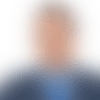Fantasy Football drafts are filled with elite quarterbacks, stud running backs and athletic wide receivers and tight ends who excite and thrill us between the white lines. But a major part of their successes (and failures) are based on the men on the sidelines, the ones with the clipboards and headsets who install the offenses and call the plays that our heroes are asked to execute with incredible precision.
Several NFL teams have new men in charge of their offenses, and those personnel moves will no doubt have an impact on the value and overall production of its players. With that in mind, we've examined 10 new head coaches and/or offensive coordinators, detailed their offensive philosophies and broken down what it all means to fantasy owners.
Bruce Arians, Pittsburgh: The first quarterbacks coach Peyton Manning ever had at the NFL level, Arians was in Indianapolis for three seasons (1998-2000) and went on to serve as the offensive coordinator for the Cleveland Browns (2001-2003). He joined the Steelers in 2004 as their wide receivers coach and was integral to the development of Hines Ward into a top-notch wideout. He was promoted to Steelers offensive coordinator after the departure of Ken Whisenhunt, who moved on to Arizona as the team's head coach.
In 2002, the Browns scored their most points since 1987 under Arians' watch, but the ground game left much to be desired. In fact, the team finished no higher than 20th in the NFL in rushing offense (it was dead last in 2001) while he was the coordinator. Of course, those numbers came with the likes of Benjamin Gay, William Green, James Jackson, Lee Suggs and Jamel White in the backfield, not Willie Parker, who could lose some goal-line work to Verron Haynes or Najeh Davenport, but remains a first-round selection.
Arians' presence should be a real positive for Ben Roethlisberger, who could be a nice bargain in drafts. Big Ben has been told that the offense is his to run -- he is even expected to utilize the no huddle more often -- and Arians will allow him to call audibles and pass protections. That should also be a positive for both Ward and Santonio Holmes, who is a nice sleeper candidate this season. Arians also plans to us more one-back sets, which will allow for multiple tight-end formations so he can use Heath Miller often in the pass attack.
Cam Cameron, Miami: One of the more inventive offensive minds in the NFL, Cameron's game plans and utilization of LaDainian Tomlinson led the Chargers to an AFC West title and the most prolific scoring offense in the NFL last season. Before he was in San Diego, Cameron served as the head coach at Indiana University (1997-2001) and is credited with the development of versatile collegiate quarterback Antwaan Randle El. He was also the quarterbacks coach for the Washington Redskins (1994-1996) and was one of the main reasons that Gus Frerotte, a former seventh-round selection, reached the Pro Bowl in 1996.
Whether or not Trent Green is over the hill at age 37, he should be quite comfortable in Cameron's offense since the two worked together while in Washington. However, Green is no more than a No. 2 quarterback in the world of fantasy football. The player whose value could see the greatest increase across the board is No. 1 back Ronnie Brown, who will be in an offense that once allowed Tomlinson to rush for 1,000-plus yards and catch 100 passes in the same season. Cameron was also important in the development of All-Pro tight end Antonio Gates, so his presence puts David Martin on the radar as a low-end sleeper candidate.
Cameron plans to move Chris Chambers from a "Z" receiver to an "X" receiver, which means that the skilled wideout will line up on the less crowded side of the formation in order to take advantage of his speed in the vertical pass attack. However, the fact that the Chargers didn't produce even one 1,000-yard wideout under Cameron's watch (Keenan McCardell was closest with 917 in 2005) could hurt Chambers' value in drafts. Still, the athletic veteran could still produce seven-plus touchdowns and is a viable No. 3 fantasy receiver.
Jeff Davidson, Carolina: A former NFL offensive lineman, Davidson takes on his first full-time role as an NFL offensive coordinator with the Panthers. A tight ends coach and assistant offensive line coach with the New England Patriots (1997-2004), Davidson worked under Bill Belichick and helped the team take home three Super Bowl titles. When former Patriots defensive coordinator Romeo Crennel left the team to become the head coach in Cleveland, he followed him and became the offensive line and assistant head coach (2005-2006). He also had a stint as the offensive coordinator after Maurice Carthon left the team.
While he didn't spend much time calling plays, Davidson did tend to lean on the running game when he was head of the Browns offense. In fact, the team averaged 30.5 rushing attempts in his first four games as the play-caller compared to just over 22 carries per game under Carthon. Davidson will also use more screens to his running backs, which is good news for the draft value of both DeAngelo Williams and DeShaun Foster.
The switch to a zone-blocking scheme, which asks linemen to block a particular zone rather than a single defender, is also a real positive for Williams since he ran behind a similar scheme at the collegiate level. Davidson has confidence in Jake Delhomme, who could be a nice bargain as a No. 2 fantasy quarterback, and Steve Smith will also remain prominent in the pass attack. Davidson also wants to utilize the tight end position more often, so either Michael Gaines or Jeff King could see a small increase in overall value.
Jason Garrett, Dallas: Garrett is a former standout collegiate quarterback at Princeton who was a reserve for most of his NFL career between Dallas, the New York Giants and Miami. He went on to become the quarterbacks coach for the Dolphins (2005-2006) for two seasons before he became the offensive coordinator for the 'Boys, where he will call the plays for the first time ever under head coach Wade Phillips.
Garrett's offense will look a bit like the one that Norv Turner utilized while in Dallas. Terrell Owens, whose value will benefit from the new system, has called the Garrett-directed offense "explosive" and believes he will be moved around the line in order to exploit mismatches. Furthermore, Garrett will look to get everyone involved in the pass attack, so Terry Glenn and Patrick Crayton will benefit as well. One member of the offense that could be a nice draft value is Jason Witten, who will be used more often as a vertical threat.
Of course, Tony Romo should also produce well in Garrett's offense -- maybe even more than Troy Aikman from a statistical perspective -- so owners should consider him as a viable No. 1 fantasy quarterback. The offense will also include a lot of Julius Jones, who is in a contract year and seems to be more comfortable with Phillips at the helm rather than former head coach Bill Parcells. Jones will share carries with Marion Barber, who will be chosen first of the duo in most drafts but will be hard pressed to score another 16 touchdowns.
Jim Hostler, San Francisco: Hostler's name has been a popular one since the departure of former offensive coordinator Norv Turner, whose presence was instrumental to the development of Alex Smith and Frank Gore. Hostler started his tenure as an NFL coach with the Kansas City Chiefs as an offensive assistant (2000), moved on to New Orleans as the assistant wide receivers coach (2001-2002), and went on to New York to be the Jets' quarterbacks coach (2003) and wide receivers coach (2004). He had spent the past two seasons as the Niners quarterbacks coach and was promoted to offensive coordinator back in February.
Hostler won't alter the role of Frank Gore -- he wants him to see 25 touches per contest -- so the breakout runner out of Miami will remain a first-round selection across the board. Where the offense will be altered a bit is in the pass attack, where Hostler wants to mix Turner's vertical pass attack with a bit of a West Coast variation that will be based on progressions and short quarterback drops. While the offense is complicated, Smith has worked with both and should be comfortable. With that said, owners should consider him as a sleeper candidate who is well worth a late-round selection as a borderline No. 2 or 3 fantasy quarterback.
The fact that Hostler wants to remain aggressive with certain formations is terrific news for Darrell Jackson, who has the skills to produce solid numbers but isn't durable enough to lean on as a No. 1 fantasy receiver. Ashley Lelie could also be useful in the vertical attack, but he'll need to pass Arnaz Battle on the depth chart to warrant consideration. Much of the short and intermediate work will fall on the shoulders of athletic tight end Vernon Davis, who is a tremendous breakout candidate and a viable starter for fantasy football owners.
Lane Kiffin, Oakland: Kiffin, who at 31 became the youngest head coach in the modern NFL era, is expected to bring some real offensive fireworks to Raider Nation. His collegiate coaching career started in 1997 at Fresno State as a quarterbacks coach. He then moved on to Colorado State (1999-2000) as an offensive line coach, but his greatest accomplishments came while at the University of Southern California. He served as the Trojans tight ends coach (2001) and then went on to coach the wide receivers (2002-2003). He took over as the passing game coordinator in 2004 and was later promoted to the team's recruiting and offensive coordinator in 2005.
The son of Tampa Bay Buccaneers defensive coordinator Monte Kiffin, Lane found immense success at USC. The Trojans ranked in the top six in the nation in all offensive categories in 2005, and current NFL stars like Matt Leinart and Reggie Bush thrived in his system. Kiffin's offense will feature a ground attack similar to the one the Denver Broncos have utilized with so much success, and the fact that Bush and LenDale White had so much statistical success at USC should be seen as a positive for the value of LaMont Jordan. The unquestioned starter until Dominic Rhodes returns from a suspension, Jordan is a viable No. 3 fantasy back.
Kiffin is also expected to take chances downfield in the vertical pass attack (which is a staple of all Al Davis offenses), and that is a real positive for the values of Ronald Curry and Jerry Porter. While the latest version of the silver and black offense will be a work in progress, both wideouts will have their share of productive weeks. Josh McCown is the favorite to open the regular season as the team's quarterback, but he won't have much value outside of larger formats. No. 1 overall selection JaMarcus Russell could see some action for Kiffin as the season moves forward, but his value is limited to keeper leagues at this point in time.
Bobby Petrino, Atlanta:Hue Jackson, who spent the past three seasons as the wide receivers coach for the Cincinnati Bengals, will serve as the Falcons offensive coordinator. However, it will be Petrino whose offense will be installed and utilized. His résumé is loaded with collegiate experience and a short stint as the quarterbacks coach for the Jacksonville Jaguars (1999-2000), but much of his success came as the head coach for the University of Louisville, where his offenses seemed to dominate the opposition on a seasonal basis.
It will be interesting to see how Petrino, who loves to use multiple-receiver formations and the vertical pass attack, meshes with a unit that ranked dead last in passing offense last season. The player whose stock would have been affected the most was Michael Vick, but he is now out of the mix due to off-field issues. In fact, Joey Harrington is now the unquetioned No. 1 quarterback for the Falcons. Harrington has to avoid mistakes and be able to audibilize (which is important in Petrino's offense), and he also needs to prove he can be a team leader in Vick's absence. The Falcons need Joe Horn to avoid injuries and become a reliable option in the pass attack, which will also feature Michael Jenkins and Roddy White. However, at this point, Horn is the lone member of this trio that warrants serious draft consideration.
Petrino must still figure out how to utilize Alge Crumpler, but it's hard to foresee a scenario where he isn't involved in a prominent fashion. The backfield will consist of veteran Warrick Dunn and sleeper candidate Jerious Norwood, but neither fits the mold of the big, bruising back that Petrino has utilized in the past. Neither should be considered more than a No. 3 fantasy back, especially if rookie Jason Snelling sees the short-yardage and goal-line work. In all, this offense could be very inconsistent, so owners should beware.
E-mail Fabiano!
One of the most respected fantasy football minds in the business, Michael Fabiano is here at NFL.com. In addition to providing first-class fantasy analysis, Fabiano will answer your fantasy questions in his weekly mailbag. Got a question for Mike? Click here to submit it.
Mike Sherman, Houston: A former head coach of the Green Bay Packers (2000-2005) and a one-time offensive coordinator of the Seattle Seahawks (1999), Sherman enters his second season with the Texans organization and first as the team's offensive coordinator. In 2006, he assisted offensive line coach John Benton and helped improve the ground attack. In fact, the team averaged 122.6 rushing yards per game over the finals 11 weeks of the 2006 season, and Ron Dayne developed into a serious statistical beast.
Sherman will continue to run a version of the West Coast offense that was constructed with Mike Holmgren while the two were together in Seattle and Green Bay. The addition of Ahman Green was due in part to Sherman's relationship with him from his tenure with the Packers. Barring injuries, Green will be featured in the offense (Sherman prefers to have one back rather than a backfield committee) and is a viable No. 2 fantasy back. Ron Dayne will be used to spell Green at times, but he's more of a handcuff in his new role.
Since he coached one of the greatest quarterbacks to ever grace the gridiron in Brett Favre, Sherman will have a tremendous influence on the development of new starter Matt Schaub. Because Sherman likes to take chances in the vertical pass attack, Schaub and Andre Johnson should have their share of monster weeks. However, Schaub is still no better than a No. 2 fantasy quarterback in most formats, and the lack of a solid complement could hurt Johnson's level of consistent production. Owen Daniels could become a reliable red-zone option for Schaub in the offense, but owners shouldn't expect him to be consistent overall.
Norv Turner, San Diego: While Clarence Shelmon will be listed as the offensive coordinator, it will be Turner who guides the Chargers offense. In fact, the Bolts have utilized the same offense Turner installed when he was the team's coordinator in 2001. Turner has had much success at the NFL level -- he won two Super Bowls as an offensive coordinator with the Dallas Cowboys (1991-1993) and helped the development of Troy Aikman, Emmitt Smith and Michael Irvin. He has also been a head coach in both Washington (1994-2000) and Oakland (2004-2005). Last season, Turner was integral in the evolution of Alex Smith and Frank Gore while he served as the offensive coordinator in San Francisco.
Turner's offenses have fielded such stud runners as Smith, Gore, Terry Allen, Stephen Davis, LaMont Jordan and Ricky Williams, so his presence makes LaDainian Tomlinson that much more of a threat (if that's even possible). In the Turner offense, which was influenced by Don Coryell, the quarterback must throw a nice deep ball and possess an accurate arm. With his overall knowledge of the position, Turner alone can turn Philip Rivers into a reliable and consistent quarterback both on the field and in the world of fantasy football.
The Chargers have shown great faith in Vincent Jackson after the offseason release of Keenan McCardell, so look for Turner to use his No. 1 wideout in a prominent fashion both in and out of the red zone. Rookie Craig Davis will be used to stretch defenses when Turner wants to throw the football downfield, so owners should keep tabs on his preseason development and eventual status on the team's depth chart. The most important option in the pass attack will continue to be Antonio Gates, who is the top tight end in fantasy football and gives Turner the most talented and athletic player at the position in his time as an NFL coach.
Ken Whisenhunt, Arizona:Todd Haley is the official offensive coordinator for the Cardinals headed into the 2007 season, but it will be Whisenhunt who installs the offensive attack. The former NFL tight end and H-Back was a tight ends and special teams coach at Vanderbilt University before he moved onto the pros where he coached in Baltimore, Cleveland, New York (Jets) and Pittsburgh. He had spent the past three seasons as the Steelers offensive coordinator and helped lead the team to a win in Super Bowl XL.
Whisenhunt's success in Pittsburgh with Ben Roethlisberger is a positive for the stock of Matt Leinart, who should benefit from his schemes and is a borderline No. 1 or 2 fantasy quarterback. Offensive line and assistant head coach Russ Grimm will look to improve what was an awful unit last season, and that will be vital to the success of Edgerrin James because Whisenhunt wants to run the football about 60 percent of the time. If Grimm can cure the offensive line's woes, James could be a terrific value selection in all drafts.
Anquan Boldin will be utilized much like Hines Ward was in Pittsburgh (he has been moved from the "X" receiver to the "Z" receiver), so Whisenhunt will move him around and could even line him up in the slot. Boldin might also be used on gadget plays, and there's a chance he could even see some carries out of the backfield. Haley has also made Larry Fitzgerald a focal point in offseason work, so Boldin and Fitzgerald will both be viable No. 1 fantasy receivers. Whisenhunt would also like to use the tight end more often, but none of Leonard Pope, Ben Patrick or Troy Bienemann will warrant much consideration in fantasy football.




